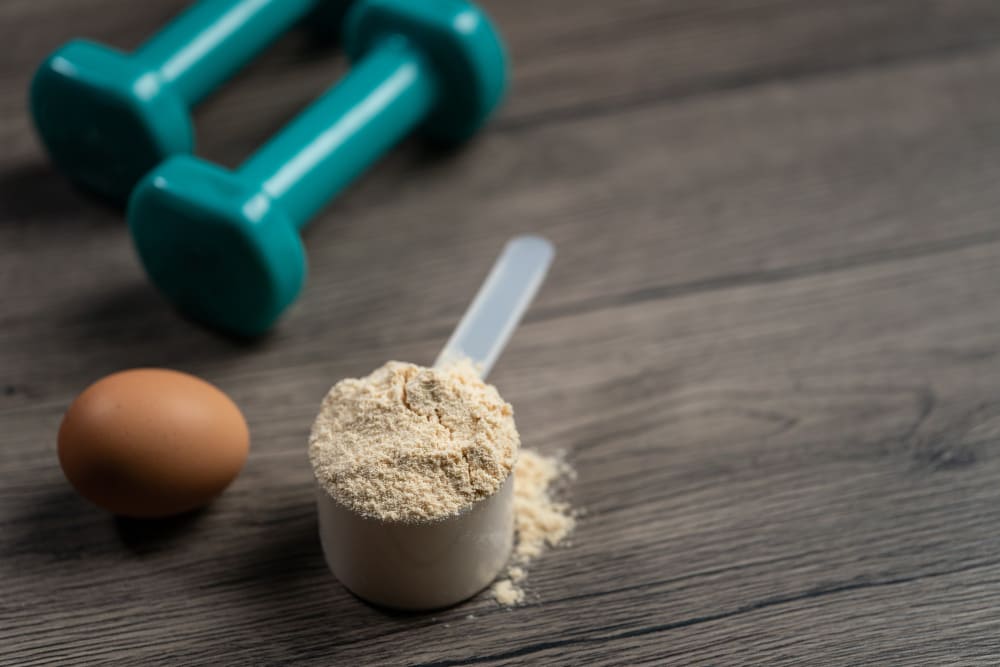Does Protein Make You Poop?


Related products
Protein is probably one of the most important macronutrients the human body needs to maintain a variety of functions, such as the development of muscle mass and the formation of hormones, in addition to some aspects of the immune response. Not very much, however, is spoken about the aftereffects of high protein diets on digestive health and quality of stool. With this in mind, a deepened understanding of how protein intake may influence digestion is crucial for making informed dietary decisions that allow for a healthy gut.
Does Protein Make You Poop?
Yes, protein can indeed affect the bowel movement. Depending on the source of protein and other constituents of your diet, it can help in regulating bowel movements or can cause constipation. Plant-based proteins are high in fibre and increase the regularity of bowl movement, while animal-based proteins, especially when taken without sufficient fibre, can cause constipation. Use this link to view our selection of popular protein supplements and powders.
How Does Protein Affect the Digestive System?
Upon consumption, protein is digested into amino acids in the stomach and small intestine; under normal conditions, digestion involves action from gastric acids and digestive enzymes. "The digestion of protein is a taxing activity on the system. It requires significant enzymatic activity, which in turn could affect the motility of the gastrointestinal tract," said Dr Michael Camilleri, a Mayo Clinic gastroenterologist.
This can sometimes lead to changes in bowel movements, either constipation or diarrhoea. In detail, foods that are very low in fibre and rich in proteins will prolong the transit time through the intestines; hence, the stool will be harder and bulkier to pass. A study published in the American Journal of Gastroenterology reported a high intake of animal protein resulted in a higher prevalence of constipation. Probably, this was due to the fact that high protein intake was associated with low fibre intake. For digestive support find out What are the Best Fibre Supplements?

Fibre Intake and Protein's Impact on Bowel
One of the major factors that would most likely predict a problem in protein digestion is the overall fibre balance in the diet. Fibre is responsible for the facilitation of normal bowel movements through increasing bulk in the stool, hence giving it an easier way down the intestines. According to one registered dietitian, Alison Eastwood, who specialises in gastrointestinal health, "a high-protein diet that is very low in fibre can alter normal bowel function significantly, leading to constipation."
Statistics support this: according to the National Institute of Diabetes and Digestive and Kidney Diseases, those consuming less than the recommended intake of fibre - 25-30 grams a day - are most likely to experience constipation, especially if they are on a high-protein diet. As such, one should consume enough fibre through fruits, vegetables, and whole grains if good digestive health is to be maintained while consuming high amounts of protein.
The Type of Protein in Stool Movements
Another key thing with regard to protein is its source and the associated impact on stool passage. Animal-based sources of protein contain very little fibre, so they may constipate if not balanced by adequate fibre intake. This is true mainly for protein from animal sources like meat, eggs, and dairy. On the other hand, plant-based protein sources are a natural package of fibre, especially from legumes, nuts, and seeds that might offset some of the constipating effects of high protein intake.
In a study published in the Journal of Nutrition, subjects consuming a plant-based diet with equivalent protein levels to a meat-based diet indicated more frequent bowel movements, with less constipation. This could be indirect evidence that choosing plant-based protein sources may help in keeping digestive regularity.
Protein Supplements and Digestive Health
One such popular supplement is protein powders, particularly whey or casein powders. These, however, can also change bowel movements. According to nutritionist Dr Laura Kendall, "While protein powders can be a convenient way of boosting your protein intake, they are often fibre devoid, and excessive use may lead to discomfort of the digestive system, including bloating and constipation."
Since most of these supplements are concentrated protein, often taken without extra fibre, they will definitely slow down digestion. Some people are just sensitive to certain forms of protein supplements, especially ASN derived from milk, which can further exacerbate digestive problems.
Managing Protein Intake for Good Digestion
If you are to avoid some digestive troubles but maintain a high-protein diet, then you need to have your protein intake done in a very careful manner. In the view of various experts, increasing the protein intake is supposed to be graduated. More to this, a well-balanced diet with enough fibre minimizes the constipating effect brought about by protein.
It is also suggested by Dr Camilleri that individuals who consume high amounts of protein also increase fibre-rich food in their diets, increasing plant-based sources of protein for better digestive health. Moreover, one should drink plenty of water. Water aids in the digestion of protein and also prevents constipation.

People Also Ask
What are the symptoms of too much protein in the body?
Such high intake of protein can cause digestion problems like constipation, diarrhoea, and bloating; major disorders include kidney strain, dehydration, bad breath, and increased risk of heart disease because of the large amount of intake of saturated fat, normally together with animal-based proteins. This can eventually result in an imbalance in the intake of nutrients if taken excessively for a longer time.
What is the best protein to help you poop?
Proteins most conducive to good elimination include plant-based proteins—legumes, nuts, seeds, and whole grains. By nature, these are high in fibre that bulks the stool, allowing it to move easily down the intestines and preventing constipation.
Do protein shakes make you gain weight?
Additional calories in the form of protein shakes will lead to weight gain. They have a high caloric density that is disproportionate with regard to activity level or other dietary considerations. The extra additional calories will therefore automatically be added on to cause weight gain. They can, however, build up muscles and create weight maintenance when used correctly within a healthy diet and workout regime.
Conclusion
Though protein plays a vital role in many functions of the human body, its effect on digestive health, notably bowel movements, cannot be made light of. Low-fiber and high-protein diets are more likely to result in constipation or some other digestion problems. Combining a balanced fibre intake with good hydration and plant-based sources of protein not only significantly reduces the risk but also passes stools at regular intervals. Only when such an intricate interplay between protein consumption and digestive health is understood well can optimal well-being and avoidance of gastrointestinal problems be ensured by great measures.


















 Rated Excellent by 26,523+ Reviews
Rated Excellent by 26,523+ Reviews